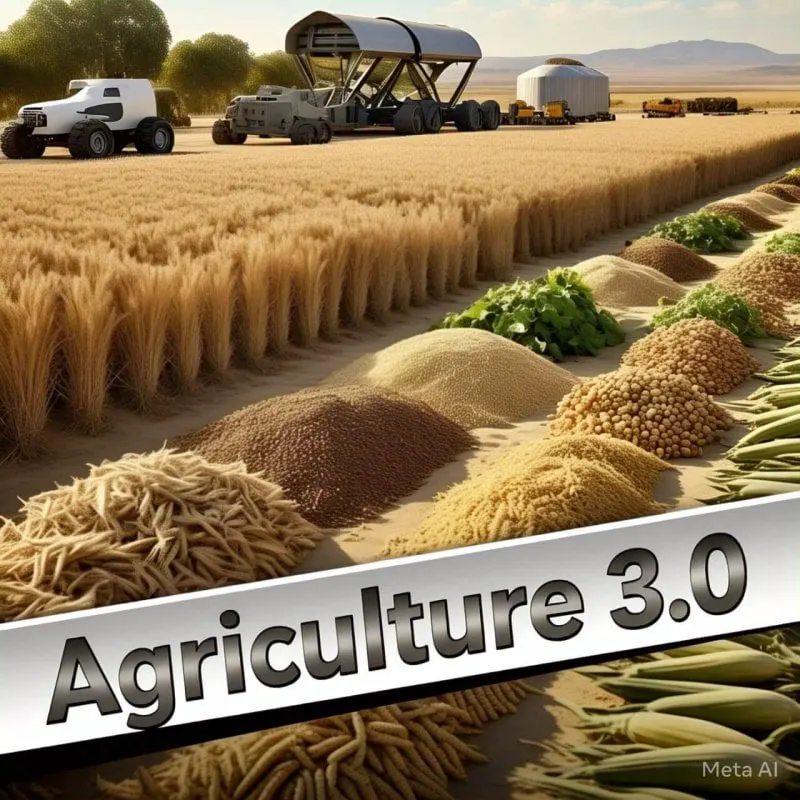Edging toward Agriculture 3.0: Genetics, irrigation and fertilization are improving—Is that enough for the leap forward necessary to feed the world?
Edging toward Agriculture 3.0: Genetics, irrigation and fertilization are improving—Is that enough for the leap forward necessary to feed the world?
February 17, 2025
XLinkedInFacebookRedditBlueskyThreads


Sometime in the 1980s, an unprecedented change in the human condition occurred. For the first time in known history, the average person on Earth had enough to eat all the time.
Depending on their size, adult humans need to take in about 2,000 to 2,500 calories per day to thrive. For as far back as historians can see, a substantial number of Earth’s inhabitants spent much of their lives below this level. Famine and want were the lot of many — sometimes most — of our species.
Follow the latest news and policy debates on sustainable agriculture, biomedicine, and other ‘disruptive’ innovations. Subscribe to our newsletter.
Almost one out of ten people still do not get enough to eat. But hunger today is generally due to low incomes and poor food distribution, rather than failing to grow enough food. Farmers produce enough for everyone, but not all get what they need. Still, our daily lives are nothing like those of previous generations.
What happened? Modern agriculture.
…
Today, Farming-2.0-style agriculture — which began with innovations in field crops like wheat but spread to other parts of farming, such as cattle ranching and chicken-raising — is by almost any measure the world’s most critical industry.
…
The sheer scale of Farming 2.0, with its giant farms and giant firms, has led food consumers increasingly to mistrust the industry. They don’t believe these enormous, profit-making enterprises have their best interests at heart. The mistrust is aggravated by the very success of modern agriculture, which has made it possible for much of the world’s population to live without having any connection to the farms and farmers who provide their food.
…
The next task for the next generation of farmers, researchers, and agricultural companies will be to maintain the gains of the past for all these new people while preserving the environment for the future.
This is an excerpt. Read the original post here
XLinkedInFacebookRedditBlueskyThreads

 | Videos | More... |

Video: Nuclear energy will destroy us? Global warming is an existential threat? Chemicals are massacring bees? Donate to the Green Industrial Complex!
 | Bees & Pollinators | More... |

GLP podcast: Science journalism is a mess. Here’s how to fix it

Mosquito massacre: Can we safely tackle malaria with a CRISPR gene drive?

Are we facing an ‘Insect Apocalypse’ caused by ‘intensive, industrial’ farming and agricultural chemicals? The media say yes; Science says ‘no’
 | Infographics | More... |

Infographic: Global regulatory and health research agencies on whether glyphosate causes cancer
Does glyphosate—the world's most heavily-used herbicide—pose serious harm to humans? Is it carcinogenic? Those issues are of both legal and ...
 | GMO FAQs | More... |

Why is there controversy over GMO foods but not GMO drugs?
Genetic Literacy Project

How are GMOs labeled around the world?
Genetic Literacy Project

How does genetic engineering differ from conventional breeding?
Genetic Literacy Project
 | GLP Profiles | More... |

Alex Jones: Right-wing conspiracy theorist stokes fear of GMOs, pesticides to sell ‘health supplements’




 From plastic coasters to human hearts: Inside the race to print the human body
From plastic coasters to human hearts: Inside the race to print the human body A single high dose of LSD can ease anxiety and depression for months
A single high dose of LSD can ease anxiety and depression for months CRISPR pork: U.S. approves first gene-edited pigs for consumption
CRISPR pork: U.S. approves first gene-edited pigs for consumption ‘SuperAgers’: Why some people have the brains and memory capacity of people decades younger
‘SuperAgers’: Why some people have the brains and memory capacity of people decades younger  Baby food panic, brought to you by trial lawyers hoping to prosecute by press release
Baby food panic, brought to you by trial lawyers hoping to prosecute by press release From ‘Frankenfood’ to superfood: Can the purple tomato overcome GMO myths to win over consumers?
From ‘Frankenfood’ to superfood: Can the purple tomato overcome GMO myths to win over consumers? Viewpoint: Life and death decisions: RFK, Jr.’s shady FDA “expert panels” operate in secret with no transcripts or conflict of interest reviews
Viewpoint: Life and death decisions: RFK, Jr.’s shady FDA “expert panels” operate in secret with no transcripts or conflict of interest reviews When farmers deny science: The hypocrisy hurting agriculture’s credibility
When farmers deny science: The hypocrisy hurting agriculture’s credibility
